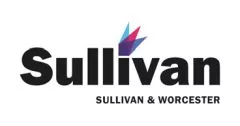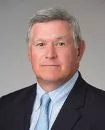Foreign Investment Funds
At the end of last week, the Fed and the other banking agencies issued an interpretation that applied to investments in certain foreign funds by foreign banking organizations that are subject to the Volcker rule. Such banks may control what is known as an excluded foreign fund until July 21, 2018, without having the investments made by such fund being subject to the Volcker rule. Under the Fed's interpretation of the Volcker rule, certain investment funds sold exclusively outside the U.S. would be deemed subject to the Volcker rule if these funds were controlled by a foreign bank that was itself subject to the Volcker rule.
This issue arises in circumstances where a foreign bank may be deemed to "control" the foreign fund through ownership interests, ability to manage or otherwise direct the business of the foreign fund. In such a case, the fund could be an affiliate of the foreign bank and be subject to the Volcker rule's restrictions on trading activities in the same way that the foreign bank is restricted.
The recent interpretation permits these foreign funds to continue to engage in trading and other investing activities that may be restricted under the Volcker rule. A key element of the interpretation is that the activities of the fund be conducted solely outside the U.S. The Fed's release defines such a "qualified foreign excluded fund" as one that: (1) is organized outside the U.S. and is sold outside the U.S.; (2) it would be a "covered fund" if it was sold in the U.S.; (3) the fund itself a bank or bank affiliate; (4) was set up as part of a genuine asset management business and (5) was not set up to evade the Volcker rule.
It is expected that during this next year, either the Congress or the banking agencies will make changes to the law to resolve this situation. See, https://www.federalreserve.gov/newsevents/pressreleases/bcreg20170721a.htm
Investments as part of Organizing Covered Funds
Yesterday, the Fed issued guidance for banks that are in the process of organizing or offering a covered fund (a hedge fund or private equity fund). In such cases a bank may invest in a covered fund in order to give the fund enough capital for investment that will allow third-party investors or to make a small direct investment (up to 3% of the total ownership interests within one year after the fund is established).
The Fed is authorized by the Volcker rule to extend this one-year period for an additional two years in the proper circumstances.
The Fed has delegated authority to the local Reserve Banks to grant such extensions so long as: there are no issues with the bank's compliance program; all of the requirements for organizing and offering a covered fund have been met; the bank has plan to reduce its investment and the bank's primary regulator dos not object to the extension. See, https://www.federalreserve.gov/newsevents/pressreleases/bcreg20170724a.htm
The content of this article is intended to provide a general guide to the subject matter. Specialist advice should be sought about your specific circumstances.

